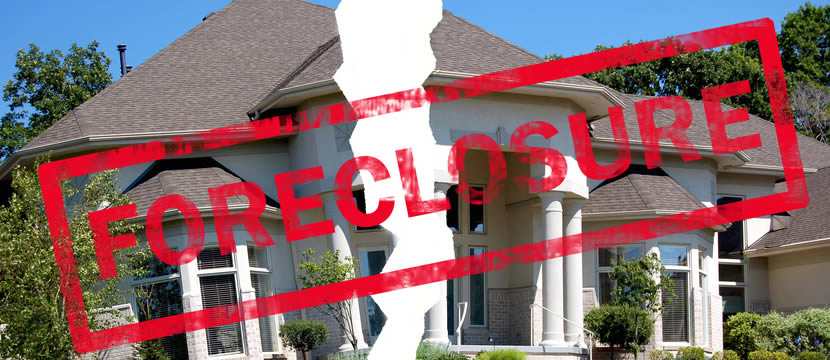Foreclosure is what occurs when a homeowner fails to pay the mortgage and is unable to pay the outstanding debt back within a certain amount of time. Foreclosure is a rather lengthy process that begins before a home is even officially in foreclosure.
Technically, there is notice, pre-foreclosure, foreclosure, and post-foreclosure. But the general public refers to the whole process as foreclosure, so we’ll do the same here. Though, we are going to break down the different stages for you.
The Stages of Foreclosure
The foreclosure process can vary from state to state. For the most part, foreclosures progress in the following stages.
1. Default on Loan
The first stage of foreclosure begins when the homeowner misses a mortgage payment. Most lenders don’t apply too much pressure after the first missed payment, and will send friendly notices reminding you to pay your mortgage. If you fail to make the payment in a timely manner or miss another payment, you will receive another notice from the bank. The longer it continues, the more messages and phone calls you’ll likely receive.
In most cases, lenders try to work with you as much as they can for 90 days, some even stretch it to six months. But do not rely on such leniency because the lender has the right to move forward with foreclosure as soon as you default on the loan. It’s much better to be as proactive as you can and contact your lender as soon as you default to see what options they are willing to offer.
2. Notice of Default
A notice of default (NOD) is the official, public notice that your mortgage is in default and the lender is filing a suit to regain all rights to the property. The lender will file the NOD after their leniency period is over. As we mentioned, that is usually at the three-month mark, but could be as long as six months.
3. Pre-Foreclosure
After receiving the NOD, the homeowner is granted another grace period known as pre-foreclosure. Pre-foreclosure can last from 30 to 120 days depending on local laws. During this time, the homeowner can pay the amount owed (in addition to regular monthly payments) or work with the lender to sell the home via a short sale.
A short sale is when a homeowner sells their property for less than the amount due on the mortgage. The lender must agree to the lesser amount for the sale to finalize. If a short sale fails, then the home will go into foreclosure.
4. Foreclosure
If the debt is not resolved during the pre-foreclosure time limit, the house will officially be in foreclosure and an auction date will be set. The house will be sold for cash to the highest bidder at the auction. In many states, including Florida, the homeowner has the right of redemption. If the homeowner can come up with the outstanding cash, then they can stop the foreclosure. Though, they usually have a very small window after auction to do so.
Need to Sell Your House Fast?
If you are trying to avoid or stop foreclosure, companies that buy houses for cash may be able to help before your house goes to auction. By avoiding or stopping foreclosure, you can preserve your credit and take control of your future. Their cash offer may be enough for a short sale or even to meet your current mortgage amount.
Tropic Coast Homes buys houses for cash in any condition in Southwest Florida. Contact us today for a no-obligation offer.

